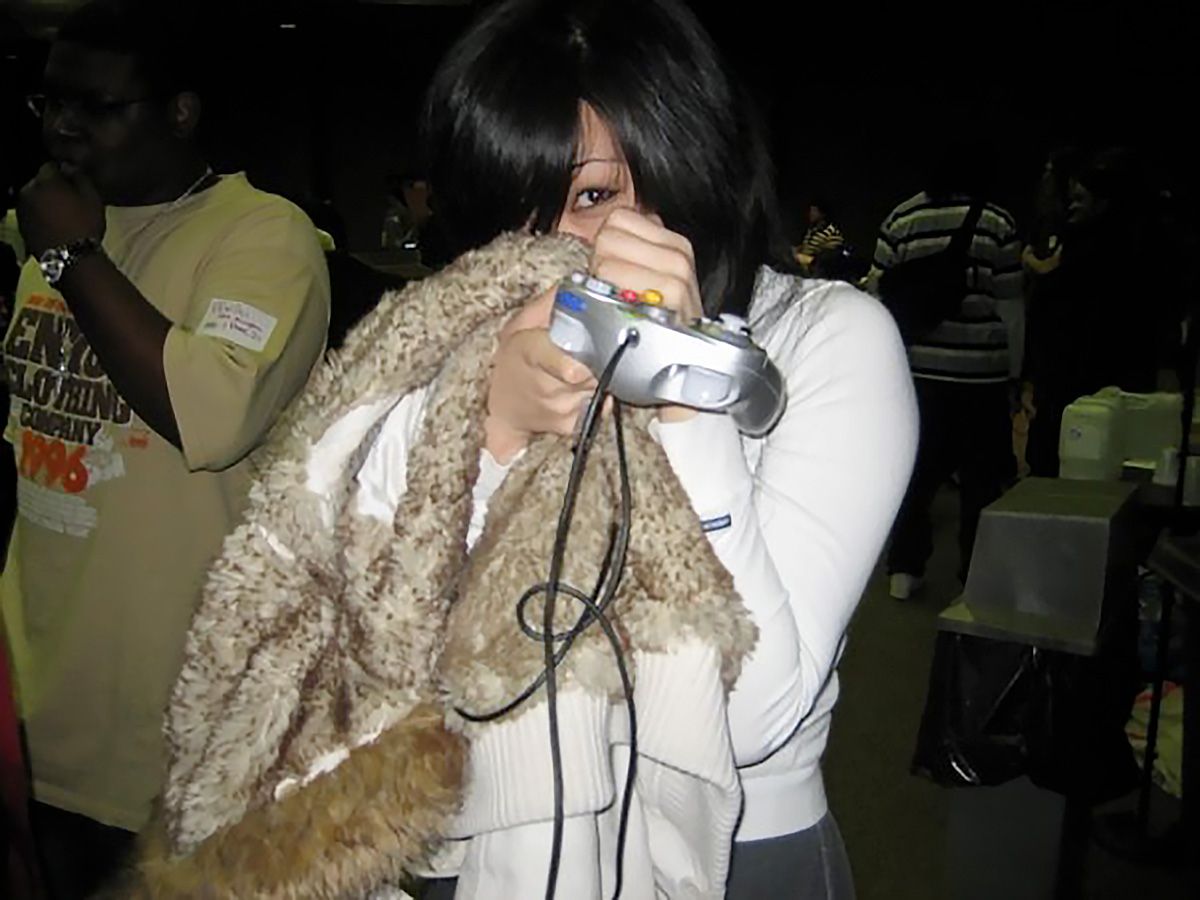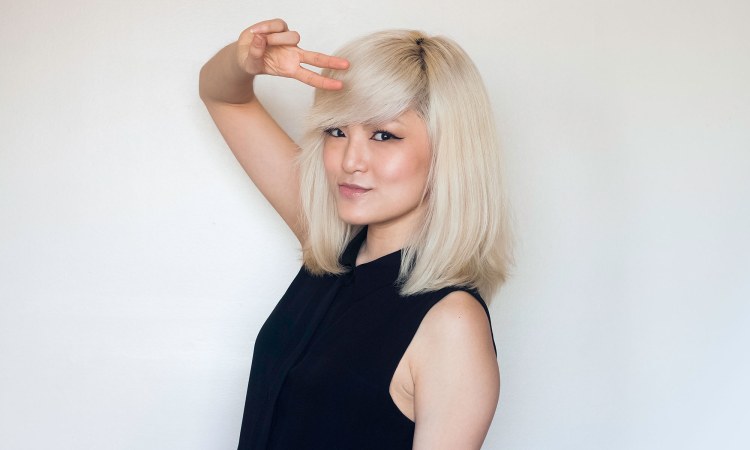
Non-gamers love to stereotype the world of competitive gaming. But what’s it really like? We asked a former competitive Super Smash Brothers Melee player to tell us her story.
Non-gamers, picture the biggest and most fun music festival you’ve ever attended. Imagine lots of noise and lots of energy. Now, imagine that at this fantastic festival — you’re in one of the most beloved bands. And the audience? It’s filled with people you know.
More often than not, that’s what competitive gaming feels like. It’s a world that allows your nerdier alter ego to come to life. It’s this:
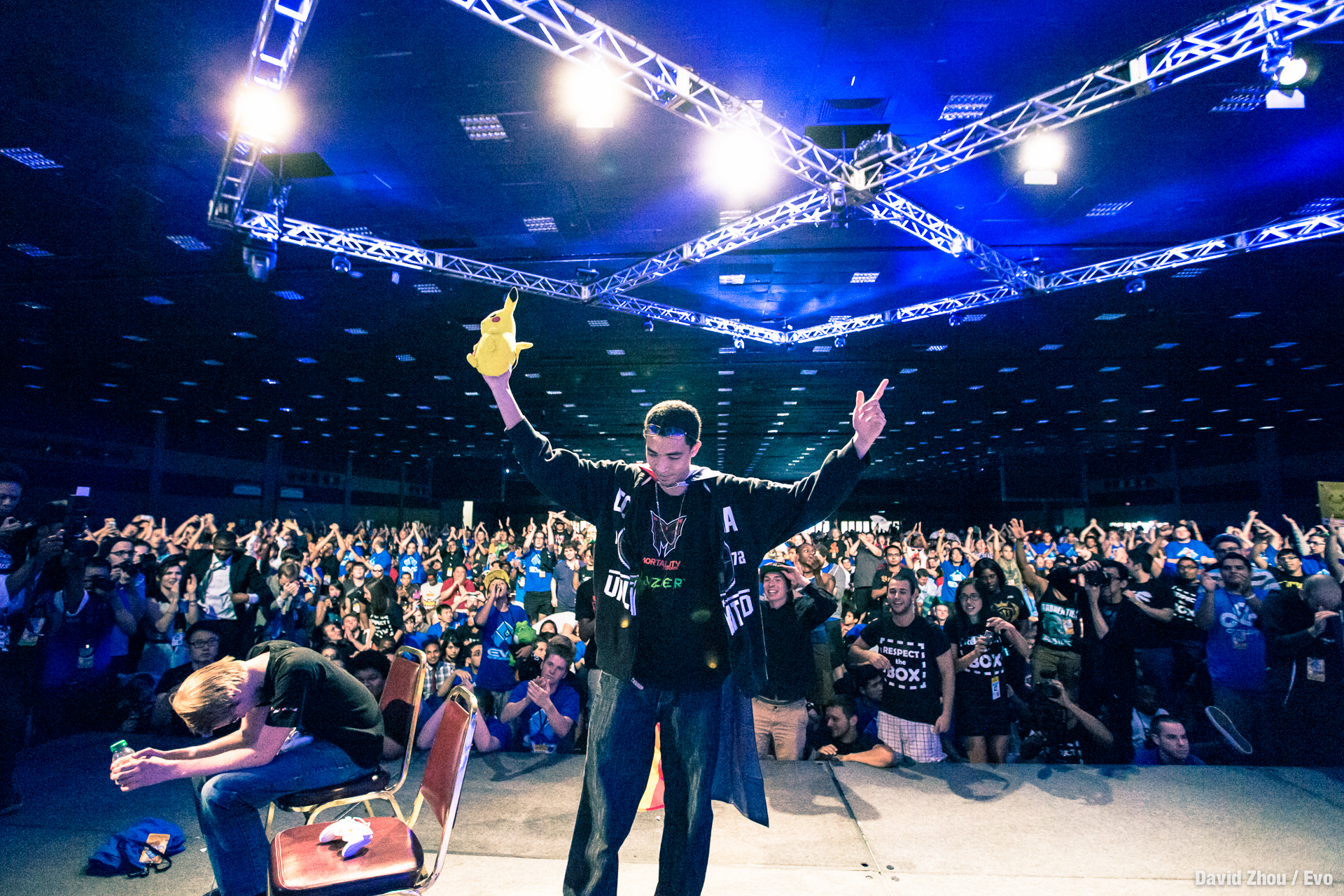
It’s a diverse bunch. Last year at Apex, 1500 people from 16 different countries traveled to New Jersey just to play.
I would know: For the last ten years I’ve been playing Super Smash Brothers Melee — and for three of those years I played competitively in national tournaments. For the uninitiated, Smash is a game made for the Nintendo Gamecube, in which players take on avatars of well-known video game characters like Mario or Donkey Kong and pummel each other until one player is left standing. Hardcore gamers compete in pairs, or more commonly, one on one.
The Smash community is a dedicated bunch. Because it’s an older game, there’s none of that newfangled online playing. You have to compete old school, in person. The game requires big clunky CRT TVs that no one’s seen in a decade, so if you want to play at a tournament, you have to lug those giant things to and from the event. Players actually bring these as carry-ons onto their flights. (Note: On October 3, Nintendo will release the first portable entry in the series to North America — Super Smash Brothers for Nintendo 3DS.)
It’s a diverse bunch, too. Last year at Apex, an annual Smash tournament, 1500 attendees from 16 different countries traveled to New Jersey just to play. That kind of diversity allowed me to interact with and befriend people I might otherwise never have met.
My competitive gaming career started at my family’s Chinese restaurant, Peking House.
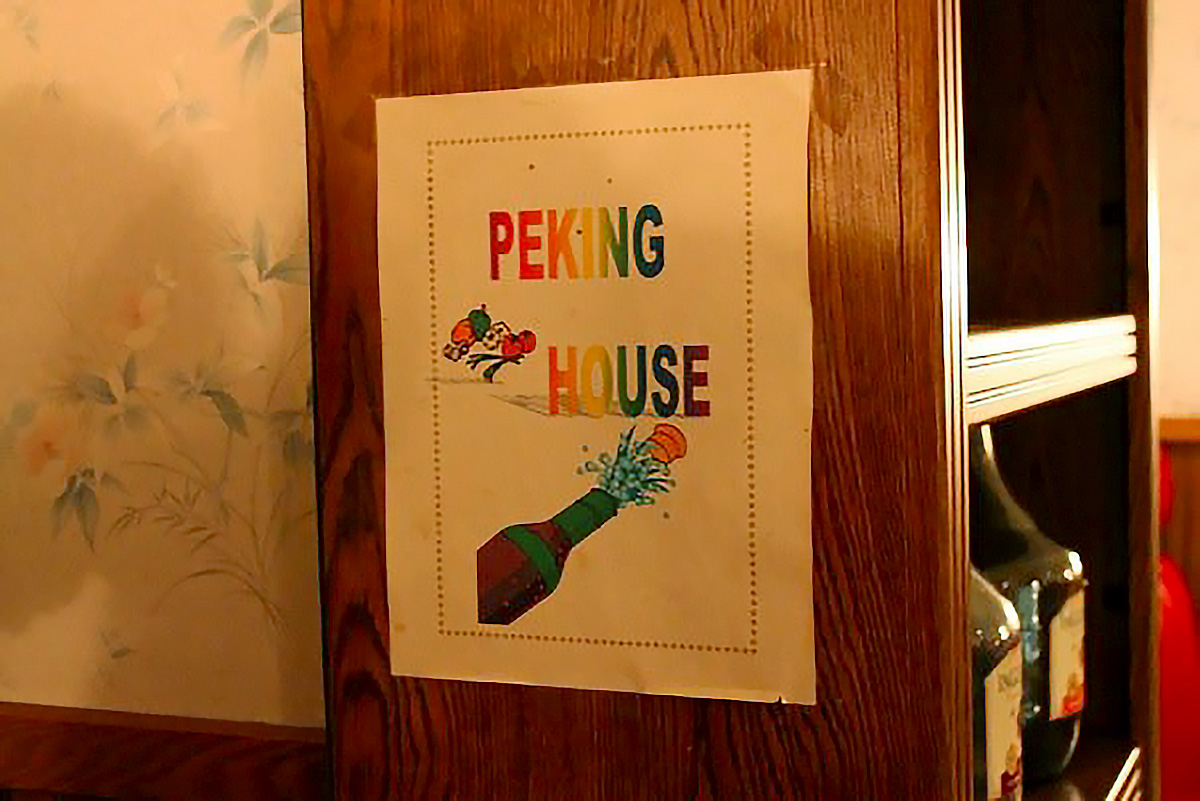
My competitive gaming career started at my family’s Chinese restaurant, Peking House, in Willimantic, Connecticut, where my little brother and I spent countless hours in the back playing games. (This poster is also an early sign of my graphic design skills. Please note the rainbow gradient.) When I was sixteen I played in my first local tournament, where I placed thirteenth out of thirty-three. By the time I was seventeen, I had trained enough to be whisked around the country — just to play video games.
It was around that time that I created my alter ego, Milktea.
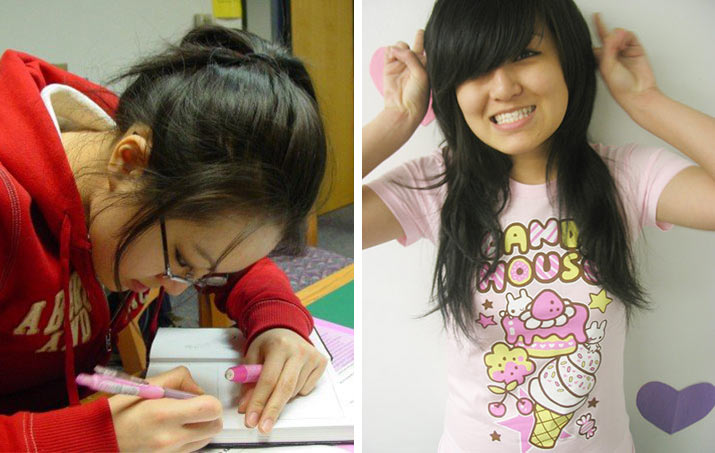
It was around that time that I created my alter ego, Milktea. See, back then, Lilian was pretty shy. She didn’t fit in at school. She was bullied for being Asian, for the way she dressed, for being different. Lilian got called a Chinese prostitute on the bus ride home and got asked out on dates as a joke. Milktea, though, was part of a community – a group of super accepting guys with the same interests. I was more than happy to be Milktea and leave Lilian behind. It was paradise.
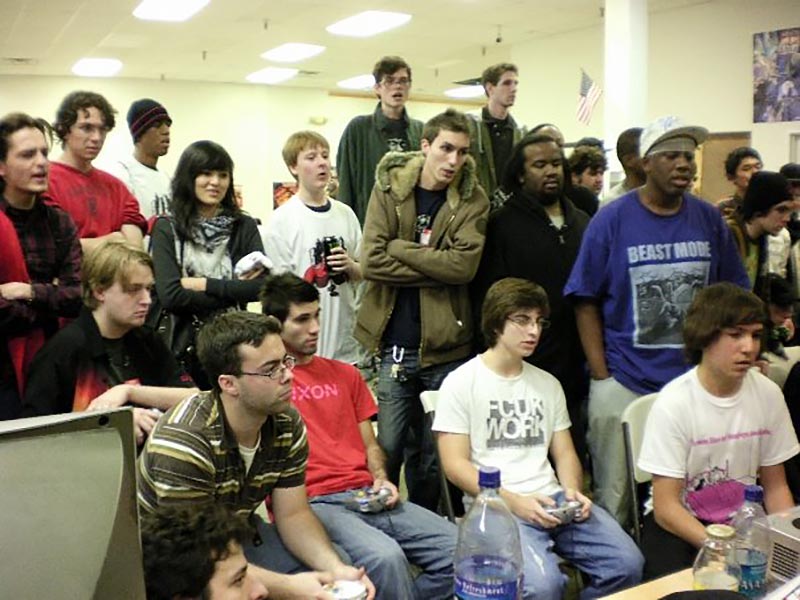
Except: What’s missing from this picture? When you have a gender imbalance like one girl for every thirty guys at local events, as it often is in the Smash community, social dynamics can become … a bit skewed. A girl can get a lot more attention than she normally would. At the time I didn’t really understand why I was getting this attention – but I knew that it was much better than what I was dealing with at school.
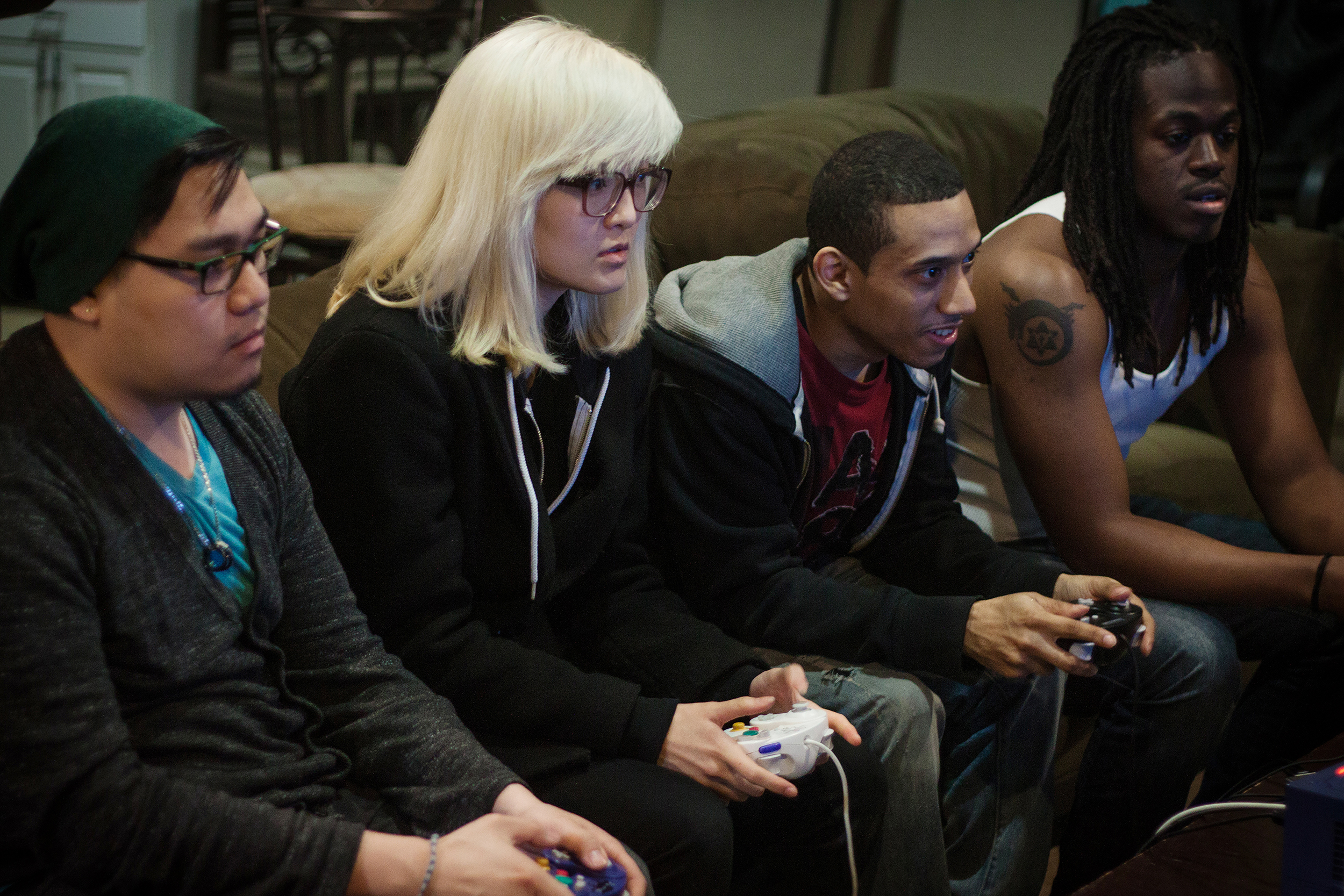
Sometimes online comments got awkward (“milktea is lika amazingly hot!! ^^” [sic]) and sometimes they were funny (“Milktea chan you are really attractive .. if I had to rate you by beauty I give you a 8 out of 10 … only because I’ve been crushing on another girl for a long time”). But sometimes there was nothing funny about them:

You might be wondering: Just why did I put up with this? Honestly, I came to think it was normal. Worse: I started adopting some of these boys’ attitudes toward women, thinking, “Why is that girl wearing a skirt to a tournament?” “Why does she have to be so girly?” “Why is she giggling?” “Ew, is she even a real gamer?”
So I kept to myself. And over time, I felt Milktea’s voice shrinking away to resemble Lil’s. My outlet was no longer my paradise, and as my resentment grew, I distanced myself from the Smash community.
At that moment, my inner wallflower spontaneously combusted.
Fast forward a few years: I got my first job out of college, and I was working in an office where sexist behavior was very much not the norm. I was still quiet and withdrawn. Just the idea of speaking in public or writing blog posts made me queasy (still does), and I avoided it at all costs.
But then this Facebook comment appeared in my feed:

At that moment, my inner wallflower spontaneously combusted. With the encouragement of my friends, I started writing blog posts about my experiences in the community, addressing some of the gender issues I had faced. And guess what? They went viral. People cared. One post got picked up within the fighting game community. That led to a panel, which got written about by the video gaming site Polygon.
All this positive feedback led me to co-create The New Meta, a panel I curated and moderated in May 2014 with the support of the NYU Game Center.
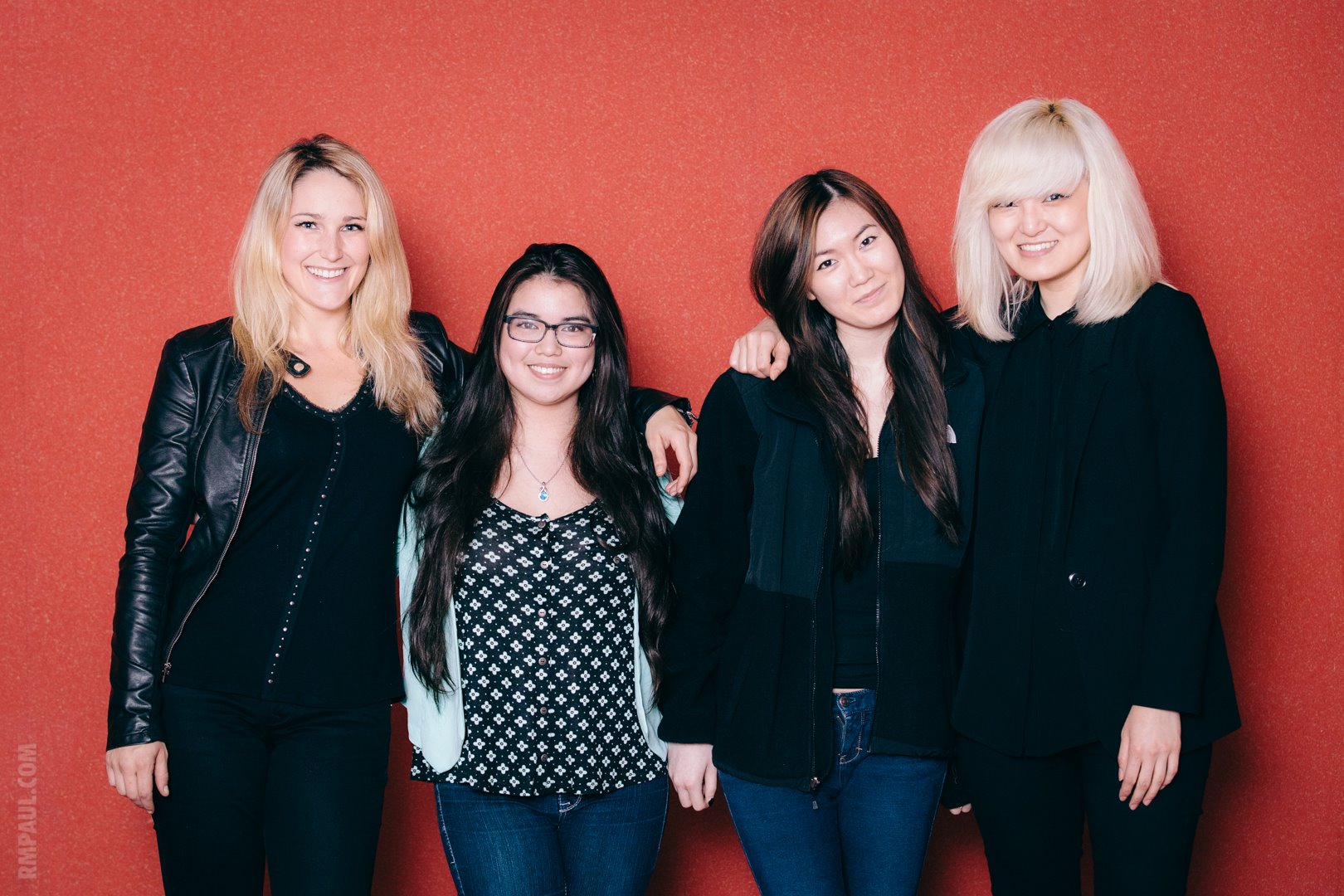
Trying to empathize seemed a more productive approach than just calling them sexist neckbeards.
We pulled in well-known women from different gaming communities to talk about sexism in gaming. I made it clear to everyone that the panel wasn’t meant to shame male gamers; as someone who used to harbor misogynistic qualities, I realized there was a very real possibility that these male gamers weren’t aware that they were perpetuating sexist behaviors. Trying to empathize with them seemed a more productive approach than just calling them sexist neckbeards.
The panel led to some great feedback:


When you’re given a voice, you need to use it, and you need to use it responsibly.
What did I learn from this entire experience? That Milktea might be just as shy as Lil, but that’s okay. Because when you’re given a voice, you need to use it, and you need to use it responsibly.
To my female gamers out there: your story is yours alone. Nobody can tell you that your personal experience was “wrong,” and absolutely nobody can discredit your feelings. It was this realization that allowed me to start speaking up. And there’s one last thing I want you to know: if you can find the necessary strength to speak your mind, you will empower not only yourself, but others.
Don’t worry: You can still be a wallflower on the inside, when nobody’s looking.
